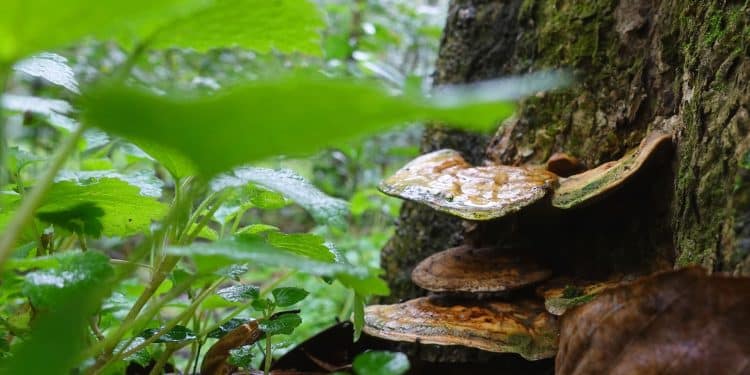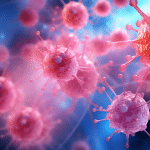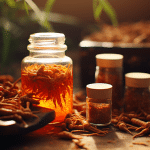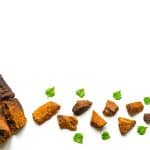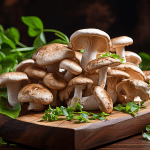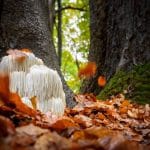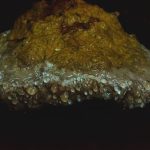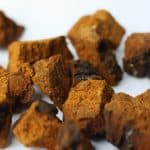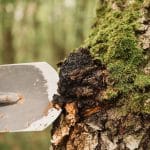Does Reishi Mushroom Help With Candida?
Reishi mushrooms can aid in the elimination of Candida due to it’s immune-boosting and anti-fundal effects. Studies show that reishi prevents candida from growing, and thus could be a crucial component in a candida-fighting protocol.
I have personal experience with this as I had a similar fungal infection, tinea. It’s a similar fungal infection to candida. Once I started taking reishi mushroom regularly my tinea completely cleared up. And my candida symptoms did as well.
You can find our favorite capsules, powders, and tincture’s on the following pages of our website and learn more about each individually:
Click here to learn more about the best Reishi Mushroom Supplements
Click here to learn more about the best Reishi Mushroom Powder
Click here to learn more about the best Reishi Mushroom Tincture
Click here to learn more about the best Reishi Mushroom Mushroom Gummies
Further Information on Reishi
Reishi (Ganoderma) is called “the sacred mushroom” in Japan, or the “spirit plant” in China. Although there are six different types of traditional reishi, only three are members of the genus Ganoderma. Red reishi, so-called because of its brick-red colour, is Ganoderma lucidum, the most medicinally active fungus in the reishi. Ganoderma tsugae is also called red reishi, but is not nearly as potent, nor is it as widely used.
Ganoderma sinensis is called black reishi, which is often used in China. To prevent confusion, use of the word reishi throughout the remainder of this article will be exclusively for Ganoderma lucidium, as it has the most researched and known medical effects. Reishi has been used in traditional Chinese medicine for thousands of years due to its ability to improve longevity. This is likely because of the adaptogenic and immune-boosting effects of Reishi. Adaptogenic herbs, in essence, help the body adjust to stressful situations, thereby keeping a person from becoming exhausted and unhealthy from prolonged daily stress exposure.
Immune Boosting Properties
As far as immune-boosting goes, reishi contains beta 1,3-glucans, which are herbal components that help to stimulate the immune system. Reishi also contains ganoderic acid in particular, which has been shown to inhibit cancer metastasis, as well as ergosterol, also known as prop-vitamin D2, which causes apoptosis, a major mechanism for preventing cancer. Reishi is best known, and best studied, for its ability to support the immune system, in addition to its anti-cancer properties.
In the past few years, more studies have been published that emphasize what types of cancers can be helped by it. The most notable implications relate to HPV (human papilloma virus). Several strains of HPV are associated with cervical cancer, leading to the development of a controversial HPV vaccine that is intended to promote immunity to certain HPV strains.
According to the Lai study, the extract from the reishi greatly inhibits the expression of the known HPV cancer-causing strain. And further studies by Cheng and Xu found constituents such as ganoderic acid effectively suppressed the growth of human cervical cancer cells. While further studies are needed, it appears reishi could be a natural alternative for preventing HPV infections and the resulting cervical cancer.
Anti-cancer
In addition, reishi can supplement traditional cancer treatments, since it can protect against the damaging effects of chemotherapy and radiation. Reishi may also have great benefits in treating other diseases. Due to its anti-histamine effects, it may be a vital component in allergy, bronchitis, asthma, or breathing health protocols. Reishi has also been known to aid in the treatment of liver disease, arthritis, or simply aid in the recovery process after long-term illnesses.
Cardiovascular Health
Reishi is also excellent for cardiovascular issues like high blood pressure, high cholesterol, stroke, or atherosclerosis. In fact, according to the Jin study, patients with high blood pressure who were not responding to medications, started taking 220 mg a day of extracts from Reishi, and the vast majority of patients experienced significant reductions in their blood pressure. Reishi has also been used to reduce blood sugar levels in diabetics, and may also be helpful for insomnia.
Reishi can be taken internally in a liquid or alcoholic extract of dried mushrooms, a powder, or even brewed into tea. Studies show the greatest benefits can be obtained by taking Reishi as an alcohol extract. However, it appears that the tea of reishi is more associated with longevity promotion.
If taking the alcohol-based extract or the liquid form, taking 30 drops twice or four times per day may have no negative effects.
Take Reishi Consistently For The Best Results
However, Reishi, like most adaptogens, does not work fast, and is best taken for long periods. Overall, reishi is a very safe herb to use indefinitely without any detrimental effects. In rare cases, some people might get mild upset stomachs when taking reishi. The only people who should be careful about trying to use reishi are those taking thinning medications such as warfarin, or people who have blood clotting disorders, since reishi may work as an anticoagulant at a high enough dose. Also, if you are an organ transplant recipient or taking immune-suppressing therapies, you will want to talk to your healthcare provider before taking reishi to avoid complications.
There is no evidence to suggest that reishi fuels candida, and it is actually more likely to help eradicate candida because of the antimicrobial and immune-boosting effects of reishi. Reishi has a bitter taste, so you might be better off choosing the extract over the tea. High-quality reishi can be obtained from your herbist or TCMD, and always look for a Ganoderma lucidum extract from the fungus fruiting body, rather than from its mycelium. The fruiting bodies have been shown to have a markedly greater medical effect than the mycelium, and cannot be used interchangeably.
Additional Resources:
Does reishi mushroom have caffeine?
Reishi mushroom and erectile dysfunction
Updated 10/24/2022
